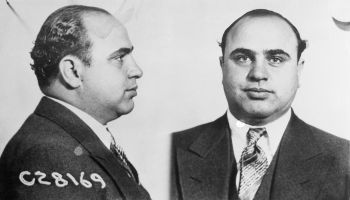VIA THE WASHINGTON POST:
A Washington man who has spent nearly 28 years in prison for raping and murdering a Georgetown University student in Rock Creek Park was ordered released Tuesday morning by a D.C. Superior Court judge after DNA evidence revealed that another man committed the crime.
Donald Eugene Gates, now 58, had maintained his innocence from the start. He was to board a bus from a prison in Arizona on Tuesday afternoon and head to a new home — and a new life — in Ohio. While the judge’s ruling frees Gates, it does not exonerate him. There will be a separate hearing to make that determination.
Senior Judge Fred B. Ugast angrily criticized government officials who relied heavily on the testimony of an FBI analyst during Gates’s trial. The analyst incorrectly linked Gates to two hairs from an African American male, found on the body of white college student Catherine Schilling, who was slain in 1981.
That FBI analyst, Michael P. Malone, was discredited in a 1997 review by the Justice Department along with 13 other analysts for making false reports and inaccurate tests.
Gates has maintained his innocence, even from the Tucson prison where he had been housed. Last year, the District’s Public Defender Services filed a motion to have further DNA testing done on Schillings’s remains. Those and subsequent tests showed that Gates didn’t commit the crime and also discovered another man’s DNA, attorneys said in court.
It was unclear Tuesday whether authorities know whose DNA they have, but no new arrests have been made. To make a link to a specific person’s DNA, officials would have to submit the genetic material to national databases and get a match. Only convicted criminals are in the databases.
“This is outrageous,” Ugast said from the bench. He ordered a review of all convictions in the District in which Malone testified. “We are trying to right a wrong,” he said.
Prosecutors said they relied on more than the hair testimony in asking a jury to convict Gates. One of Gates’s cellmates, a paid government informant, testified that Gates confessed to him about the rape and murder. Another witness testified that Gates had tried to rob her days before, and in the same location, as Schilling was killed.
Ugast, a former chief judge now on senior status, oversaw the original Gates trial in 1982, and in 1988 ordered a DNA test. But at that time, DNA testing was less reliable than now.
At Tuesday’s hearing, Ugast asked Assistant U.S. Attorney Joan Draper why it took so long for her office to look into the case. “We began looking into it as soon as it was brought to our attention,” Draper said.
Draper said the government plans to provide Gates with winter clothes, $75 and a bus ticket to Ohio, where he has family.
Gates’s attorney, Sandra K. Levick, asked for more help. “Mr. Gates is a victim here. We ask the U.S. to use more resources beyond this pittance so Mr. Gates can get on with his life,” she said.
Another hearing was scheduled for Dec. 23, at which prosecutors will review all the DNA testing to determine whether Gates should be exonerated for the crimes and not have to register as a sex offender.
“Mr. Gates has been fighting to prove that he is innocent of this crime,” Levick said. “On behalf of my client, we are thankful he is now being released,” Levick said.
One of Gates’s friends, Ricardo Nesbitt, who attended the hearing, said he never believed his friend could have raped and killed someone. “I knew he wasn’t the one,” said Nesbitt, who used to play basketball with Gates on the public courts on Seventh Street NW and worked with him unloading trucks.
“Gates just wouldn’t do anything like that. He deserves more than $75.”
- South Sudan: Entertainment, Food, Languages, Places To Visit + More
- Tunisia: Entertainment, Food, Languages, Places To Visit + More
- Algeria: Entertainment, Food, Languages, Places To Visit + More
- Sudan: Entertainment, Food, Languages, Places To Visit + More
- Egypt: Entertainment, Food, Languages, Places To Visit + More














